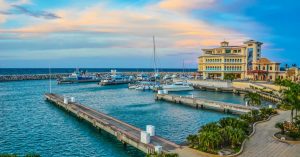Chile’s holidays are a vibrant and captivating celebration of the country’s rich cultural heritage. From religious festivities to national events, there is always something exciting happening throughout the year. With a unique blend of indigenous traditions and Spanish influences, Chile offers a diverse range of holidays that showcase its colorful history and traditions.
One of the most important holidays in Chile is Independence Day, celebrated on September 18th. This national holiday commemorates the country’s declaration of independence from Spain in 1810. It is a time for Chileans to come together and honor their freedom with lively parades, traditional dances, and mouthwatering barbecues known as “asados.” The streets are adorned with colorful flags and decorations, creating a festive atmosphere that is truly contagious.
Another significant holiday in Chile is Easter, or Semana Santa, which is observed with great religious fervor. During this time, the streets come alive with processions and reenactments of the Passion of Christ. Families gather to share meals and exchange chocolate eggs, while others take part in pilgrimages to sacred sites. It is a time of reflection, devotion, and unity for the Chilean people.
Chile’s holidays offer a unique opportunity to experience the country’s rich cultural tapestry. Whether you’re witnessing the patriotic spirit of Independence Day or immersing yourself in the solemnity of Easter, these celebrations provide a glimpse into the heart and soul of Chilean society. So, pack your bags and get ready to be swept away by the vibrant festivities that await you in this captivating South American nation.
Independence Day: Celebrating Chile’s Freedom
Independence Day in Chile is a vibrant and lively celebration that commemorates the country’s declaration of independence from Spain. On September 18th, Chileans come together to honor their freedom with parades, traditional dances, and feasts.
The atmosphere on Independence Day is electric, with streets filled with people wearing the national colors of red, white, and blue. The day begins with a flag-raising ceremony and the singing of the national anthem, “Himno Nacional de Chile.” This patriotic act sets the tone for a day filled with unity and pride.
Traditional dances play a significant role in the celebrations. The cueca, Chile’s national dance, takes center stage, with couples twirling and stomping to the lively beats of traditional music. The festive atmosphere is contagious as onlookers join in, creating a colorful and energetic spectacle.
Another highlight of Independence Day is the asado, a traditional barbecue. Families and friends gather to share delicious cuts of meat, accompanied by traditional dishes such as empanadas and pastel de choclo. The aroma of sizzling grills fills the air, adding to the festive ambiance of the day.
Throughout the day, various events and activities take place, including fireworks displays, concerts, and art exhibitions. These activities provide entertainment for people of all ages and ensure that everyone can partake in the festivities.
Independence Day in Chile is a time to celebrate the country’s rich cultural heritage and reflect on the journey towards freedom. It is an opportunity for locals and visitors alike to immerse themselves in the vibrant and captivating festivities that showcase the spirit and resilience of the Chilean people.
- Independence Day in Chile commemorates the country’s declaration of independence from Spain.
- The day is marked by parades, traditional dances, and feasts.
- Traditional dance, such as the cueca, plays a significant role in the celebrations.
- The asado, a traditional barbecue, is a highlight of the day, accompanied by traditional dishes.
- Fireworks displays, concerts, and art exhibitions provide entertainment throughout the day.
Easter: A Time of Reflection and Devotion
Easter in Chile is a time of deep reflection and religious devotion. Observed during the Holy Week, this important holiday holds great significance for the predominantly Catholic country. The celebrations begin on Palm Sunday and culminate on Easter Sunday, marking the resurrection of Jesus Christ.
Processions and Solemn Ceremonies
During Holy Week, cities and towns throughout Chile come alive with processions and solemn ceremonies. The most renowned procession takes place in the capital city of Santiago, where thousands of people gather to witness the Stations of the Cross. This reenactment of Jesus’ final hours includes prayers, hymns, and live representations of key biblical figures.
Religious Traditions and Customs
Alongside the processions, various religious traditions and customs are practiced across the country during Easter. One such tradition is the making of Cucuruchos, which are homemade sweets made from sugar and filled with fruit, nuts, or caramel. These sweet treats are then distributed to family and friends.
Embracing Nature’s Beauty
In addition to the religious aspect, Easter in Chile is also a time to appreciate the country’s natural beauty. Many families take advantage of the long weekend to escape to the countryside or coastal areas, enjoying picnics and outdoor activities. This provides an opportunity to engage in relaxation and connection with loved ones, amidst the breathtaking landscapes of Chile.
Conclusion
Easter in Chile is not only a time for religious observance but also a chance to reflect on one’s spirituality and spend quality time with family and friends. The captivating processions, ancient traditions, and picturesque scenery all contribute to a truly memorable Easter experience in this vibrant South American country. Whether one chooses to attend the solemn ceremonies or join in the Easter festivities, Chile offers a unique celebration that combines faith, culture, and nature.
Immerse Yourself in Chile’s Rich Cultural Tapestry
Chile’s vibrant and captivating holidays offer a unique opportunity to experience the country’s rich cultural heritage. From lively parades to traditional dances and mouthwatering barbecues, these celebrations showcase the essence of Chilean culture. Whether you’re a local or a visitor, participating in these festivities allows you to truly immerse yourself in Chile’s cultural tapestry.
One of the most important holidays in Chile is Independence Day, celebrated on September 18th. This significant day commemorates Chile’s declaration of independence from Spain. The celebrations kick off with a flag-raising ceremony, where the Chilean flag proudly flutters in the breeze. This momentous occasion is followed by a series of events and activities that showcase Chile’s unique traditions.
Traditional dance plays a central role in Independence Day celebrations, with the cueca being the most prominent. The cueca is a lively partner dance, symbolizing courtship between a man and a woman. Dancers gracefully move to the rhythm of traditional music, wearing colorful traditional attire that represents different regions of the country.
Of course, no Chilean celebration is complete without an asado barbecue. Families and friends gather together to enjoy a feast of juicy grilled meats, accompanied by traditional sides such as pebre, a spicy salsa, and empanadas, savory pastries filled with meat or cheese. This mouthwatering tradition brings people together and reinforces the sense of community that is at the heart of Chilean culture.
In addition to the flag-raising ceremony, traditional dances, and delectable barbecues, Independence Day is also marked by spectacular fireworks displays, concerts, and art exhibitions. These events provide a platform for both established and emerging artists to showcase their talent, further enriching the cultural experience.
Chile’s holidays offer a unique window into the country’s cultural tapestry. They bring people together, celebrate the nation’s history, and highlight the artistic talents of its people. So, whether you are a local or a visitor, make sure to immerse yourself in the vibrant festivities of Chile and create unforgettable memories that will last a lifetime.
Experience the Colorful Festivities of Chile’s Holidays
The holidays in Chile are a time of vibrant celebrations, cultural heritage, and joyful gatherings. From Independence Day to Easter, each holiday brings its own unique traditions and experiences that showcase the rich diversity of the country.
Independence Day: A Celebration of Patriotism and Heritage
Independence Day, which falls on September 18th, is one of the most significant holidays in Chile. This date commemorates Chile’s declaration of independence from Spain in 1810. The celebrations kick off with a flag-raising ceremony in every city and town, where crowds gather to honor the national flag and sing the national anthem. It’s a powerful moment that symbolizes the unity and pride of the Chilean people.
During Independence Day, you’ll witness traditional dances like the cueca, a lively and flirtatious dance that originated in Chile. The cueca is performed in colorful traditional attire, accompanied by the lively tunes of guitars and accordions. It’s a captivating sight that captures the essence of Chilean culture.
No Independence Day celebration is complete without indulging in the famous asado barbecue. Families and friends gather around the grill to enjoy delicious grilled meat, choripanes (Chilean hot dogs), and traditional dishes like empanadas and cazuelas. It’s a feast for the senses that brings people together and creates lasting memories.
In addition to these traditional elements, Independence Day in Chile offers a wide range of events and activities for everyone to enjoy. Fireworks displays light up the night sky, concerts showcase the country’s musical talent, and art exhibitions highlight Chilean artists. It’s a time when the entire country comes alive with colors, sounds, and a sense of unity.
Easter: A Time of Reflection and Natural Beauty
Easter in Chile is a time of deep reflection and religious devotion. The week leading up to Easter Sunday, known as Holy Week, is marked by processions and solemn ceremonies that portray the passion and sacrifice of Jesus Christ. People gather in churches and town squares, carrying religious statues and participating in acts of prayer and worship.
Conclusion: Chile’s Vibrant Celebration of Culture and Tradition
Chile’s holidays offer a unique and captivating experience, celebrating the country’s rich cultural heritage. From the vibrant Independence Day festivities to the deep religious devotion of Easter, these holidays provide a glimpse into the heart and soul of Chilean traditions.
Independence Day in Chile is marked by the flag-raising ceremony, where the nation comes together to honor its history and freedom. Traditional dances like the cueca fill the streets with energy and joy, while the famous asado barbecue tantalizes the taste buds. Fireworks displays, concerts, and art exhibitions further enhance the festive atmosphere, creating a truly memorable celebration.
Easter in Chile is a time of reflection and religious significance. The processions and solemn ceremonies during Holy Week showcase the country’s deep-rooted faith and devotion. It is also an opportunity to appreciate Chile’s natural beauty, as families escape to the countryside or coastal areas to enjoy the long weekend.
Overall, Chile’s holidays weave together culture, tradition, and natural beauty, creating an unforgettable experience. Whether it’s witnessing the flag-raising ceremony or participating in the religious processions, these celebrations immerse visitors in the heart and soul of Chilean life. Come and experience the vibrant tapestry of Chile’s holidays, and create memories that will last a lifetime.
Frequently Asked Questions
Q: What holidays are celebrated in Chile?
A: Chile celebrates Independence Day and Easter, among other holidays.
Q: What happens on Independence Day in Chile?
A: Independence Day in Chile is marked by a flag-raising ceremony, traditional dances like the cueca, and the famous asado barbecue.
Q: What events and activities take place during Independence Day?
A: Independence Day in Chile is celebrated with fireworks displays, concerts, and art exhibitions.
Q: What is the significance of Easter in Chile?
A: Easter in Chile is a time of deep reflection and religious devotion, with processions and solemn ceremonies taking place during Holy Week.
Q: What other traditions and customs are practiced during Easter in Chile?
A: Various religious traditions and customs are observed across the country during Easter, including the Stations of the Cross and the burning of Judas effigies.
Q: Are there any other highlights of Easter in Chile?
A: Easter in Chile is also an opportunity to appreciate the country’s natural beauty, with many families escaping to the countryside or coastal areas during the long weekend.



